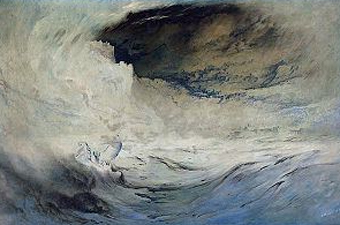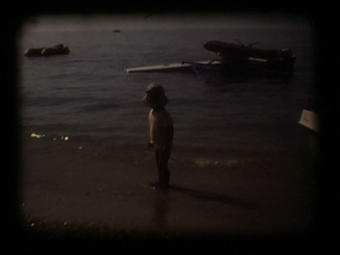
|
April 5th - 10th
Ten selections of short films will be submitted to the international jury of the festival. Contemporary movies, from all the countries, chosen for their esthetical audacity, their intuition and their complex attitude towards the modern world
|
Program n°5 - Wednesday 7th April 2010 - 18h - Cinéma Archipel
| We - 1st Person Plural |
+
Infos  |
|

|
Vika Kirchenbauer
Germany
2009 * DV * 0 :10 :00
"This is a film about predictable patterns of human behaviour" and at the same time a decomposed commentary about impossible encounters between people.
|
| Beast |
+
Infos  |
|

|
Lars Pedersen Arendt
Denmark
2009 * DCP * 0:15:00
Ten year old Benjamin and his mother live on an isolated farm under the violent reign of his father. Mother takes the beating and tries to cover up to keep things normal. But when Benjamin one day witnesses this beating, his suspicions are turned into facts. Benjamin wants his father to apologize to his mother for hitting her. Benjamin naively believes that things can be set straight with words alone. When Benjamin worsens the situation by taking his father's puppy as a hostage things escalate to a point where his mother has to step up and do what she should have done a long time ago.
|
| Believe |
+
Infos  |
|

|
Paul Wright
UK
2009 * 35 mm * 0:20:00
Believe is the story of one man's grief following the death of his wife. The film captures a desperate journey, played out against beautifully isolated highland landscapes.
|
| Métropolis Ferry |
+
Infos  |
|

|
Juan Gautier
Spain
2009 * 35 mm * 0 :16 :15
David returns from a trip to Morocco with his brothers. In the frontier with Spain an incident occurs and he decides he wants to take part.
|
| Lesh Sabreen ? (Why Sabreen ?) |
+
Infos  |
|

|
Muayad Mousa Aayan
Palestine
2008* Beta * 0:20:00
Set in a Palestinian neighborhood in Jerusalem, 'Lesh Sabreen?' tells the story of two young lovers as they navigate dreams and dead-ends in their socially-conservative and Israeli-controlled community. The film illustrates the several layers of authority, from the patriarchal social norms and taboos, to economic pressures and the military occupation, continually facing young Arab Jerusalemites.
|
|






